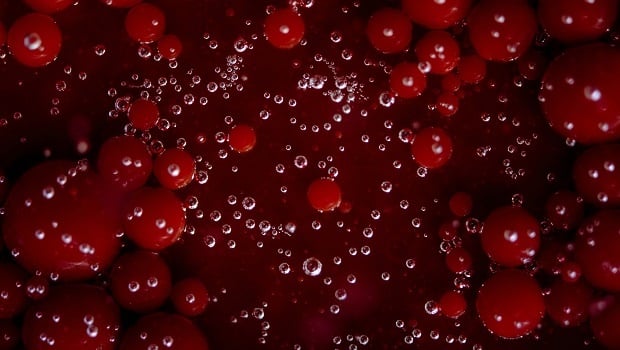
Just because you’ve been getting a period every month since puberty doesn’t mean that you have it all figured out. For example, why on earth do you sometimes have large, dark clumps of jelly sticking to your menstrual pad or tampon?
Shouldn’t menstruation blood be more of a liquid than a jam? These kinda-sorta nerve-wracking blobs are known as period blood clots.
Just like blood running throughout your body can clot, so can your period blood. But while a clot in your leg can be ominous, period blood clots are completely normal and generally nothing to worry about (phew!).
Why do period blood clots form?
“Our bodies are engineered in a way that blood, with the help of internal chemicals, clots so that we don’t bleed to death,” explains Susan Wysocki, a nurse practitioner and board member of the American Sexual Health Association.
Typically, anti-coagulants released by the body during menstruation fend off period blood clots. But sometimes, especially if you have a heavy flow, not all of your uterine tissue is able to be broken down, which leads to clots forming and being released during menstruation.
These clots are typically red or dark in colour and appear during the heaviest days of your period.
READ MORE: How to tell the difference between period blood and spotting
Do all women get period blood clots?
In short, no. “It really depends on individual chemistry and whether they have a heavy or light period,” Susan says. And you might not always get them, either; it isn’t unusual to experience clots sporadically throughout your years of menstruation.
Interestingly enough, you might notice period clots during the first and last years of your period. “It’s not unusual for women to have heavy, heavy bleeding during puberty,” which could likely involve clotting, Susan says.
On the other end of the spectrum are perimenopausal women, whose ovulation and menstruation are beginning to occur further apart (sometimes, this starts as early as age 30).
When you finally do start bleeding at that stage, your periods may be heavier than you’re used to and contain period blood clots.
READ MORE: What your period blood consistency says about your health
What do period blood clots say about my health?
Usually, period clots are nothing to worry about (really!), and they just come with heavy-ish periods. But in some cases, a heavy flow can signal a bigger medical problem.
Keep in mind: Many of these issues are accompanied by pain and other symptoms — not *just* period blood clots.
For example, sometimes period blood clots are a sign that you could be anaemic, which is when you’re low on healthy red blood cells, sometimes due to too little iron or vitamin B12 (usually, this comes along with feeling super weak and fatigued, too).
Other times, menstrual blood clots are related to down-there issues such as uterine fibroids (small, common, non-cancerous growths in the uterus), pelvic inflammatory disease (a common infection that strikes your reproductive organs), endometriosis (a disorder where your endometrium, the tissue that typically lines your uterus, starts to grow outside of it), or adenomyosis (which comes about when endometrial tissue moves outside the uterus, this time into its outer walls).
Polycystic ovary syndrome (PCOS), a common health problem caused by out-of-balance reproductive hormones, is also linked to blood clots during your period.
And if you’re trying to get pregnant (or think you might be) and feel pain and cramping in your lower abdomen or back plus spotting, bleeding, or finding tissue passing from your vagina, those could be signs of a miscarriage — as opposed to typical period blood clots.
Susan also says if you experience heavy periods with clotted blood that also leave you pale and light-headed, you should consult a doctor to rule out von Willebrand disease (VWD), a condition that prevents blood from clotting properly.
(While women typically discover if they have VWD during adolescence due to how annoying and disruptive the periods are, in rare cases, it can develop and get diagnosed later in life, per the Mayo Clinic.)
Another potential culprit for menstrual blood clots?
Your copper IUD.
While birth control often lightens up your period, the copper IUD can actually cause heavier bleeding, especially during your first year, per the American College of Obstetricians and Gynecologists (ACOG).
If you’re taking blood thinners like warfarin or enoxaparin, you may also have heavier-than-usual periods, and in turn, you might see clotting.
READ MORE: Here’s why you should always masturbate on your period
When should I talk to a doctor about my period blood clots?
Put simply, you should consult a professional if you notice a sudden change in your period or if you’re experiencing overall discomfort, Susan says. “Some people might think that ‘normal’ is being miserable, which it doesn’t have to be.”
Since heavy bleeding and period blood clots *can* signal more serious issues, they’re worth getting checked out if you’re concerned or feel like your life is being disrupted (about one-third of women end up seeking treatment for heavy periods), per the ACOG.
You should also get checked out if you need a new tampon or pad after less than two hours (or throughout the night) or your blood clots during your period are bigger than a 50c coin, the Mayo Clinic says.
How are period blood clots treated?
First, you’ll need to find out what’s causing your heavy periods. Discuss your symptoms with your ob-gyn, and get ready to go over your menstrual history.
Your doc will likely want to know how old you were when you first got your period, how long your cycle is, how many days are on the heavy side, and how your periods affect your quality of life, per the Centers for Disease Control and Prevention (CDC).
To get to the bottom of period blood clots, you might also undergo blood tests, a pap smear, an endometrial biopsy (a sample of tissue to be examined), an ultrasound, or other exams depending on your symptoms and results, according to the Mayo Clinic.
If you’re dealing with clots from a heavy period, uterine fibroids, PCOS, or a bleeding disorder like VWD, hormonal contraceptives including the Pill, patch, and a hormonal IUD can help, as well as non-steroidal anti-inflammatory drugs like ibuprofen and naproxen sodium and Tranexamic acid.
Meds like Orilissa can also ease endometriosis symptoms, though you may need multiple treatments or surgery, too.
Got PID?
That can be treated with antibiotics (and you’ll want to get your partner checked, too).
Ultimately, treatment is going to vary depending on exactly what kinds of symptoms you’re experiencing, and what could truly be behind your period blood clots, so it’s important to seek out help if you’re worried or notice something is off with your body.
This article was originally published on Women's Health.




 Publications
Publications
 Partners
Partners















